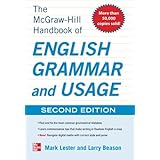intransitive (Also intransitives) : Related Words Words similar in meaning to intransitive
- intransitive verb«
- intransitive verb form«
- neuter«
- unergative«
- unaccusative«
- intransitive«
- intransitivity«
- intransitiveness«
- grammar«
- grammatical«
- intransitively«
- intransitive preposition«
- syntax«
- vi«
- well-formed«
- vai«
- morphology«
- v.i.«
- descriptive grammar«
- prescriptive grammar«
- grammatic«
- transitive«
- rock«
- verb«
- reflexive«
- grammatical category«
- pseudopassive«
- inflectional morphology«
- syntactic category«
- lust«
- syntactic«
- intransitivization«
- derivational morphology«
- compound morphology«
- syntactical«
- participial«
- glance off«
- morphological«
- glance away«
- linguistics«
- ergativity«
- morphologic«
- ergative verb«
- generative grammar«
- ergative«
- grammarian«
- syntactician«
- ditransitive«
- accidence«
- direct object«
- corporealize«
- appropinquate«
- ambitransitive«
- modify«
- agree«
- qualify«
- transitive verb form«
- transitive verb«
- phrasal verb«
- auxiliary verb«
- transitivity«
- grammatical relation«
- grammatical gender«
- grammatical case«
- infinitive«
- semantic role«
- semantics«
- participle«
- sociolinguistics«
- pragmatics«
- verbal«
- synchronic linguistics«
- syllable structure«
- tense«
- structural linguistics«
- prescriptive linguistics«
- historical linguistics«
- diachronic linguistics«
- computational linguistics«
- dialect geography«
- linguistic scientist«
- linguistic geography«
- linguistic«
- modifier«
- etymology«
- structuralism«
- phrase structure«
- participant role«
- sentence structure«
- gender«
- linguist«
- word structure«
- person«
- limiting«
- case«
- qualifier«
- modification«
- neurolinguistics«
- agreement«
- sound structure«
- transitiveness«
- diachrony«
- qualifying«
- number«
- concord«
- doubly transitive verb form«
- doubly transitive verb«
- modal verb«
- modal auxiliary verb«
- modal auxiliary«
- modal«
- split infinitive«
- semantic«
- inflection«
- lexical semantics«
- formal semantics«
- conceptual semantics«
- cognitive semantics«
- apposition«
- present participle«
- perfect participle«
- past participle«
- modality«
- aspectual«
- anaphoric relation«
- phonology«
- aspect«
- philology«
- descriptive linguistics«
- diachronic«
- affixation«
- etymological«
- sociolinguistic«
- mode«
- content word«
- inflexion«
- gender agreement«
- computational linguist«
- open-class word«
- deixis«
- person agreement«
- machine translation«
- phonetician«
- case agreement«
- restrictiveness«
- etymologist«
- semiotician«
- voice«
- subordination«
- complementation«
- historical«
- mood«
- sociolinguist«
- lexicographer«
- number agreement«
- conjunction«
- semasiology«
- semanticist«
- psycholinguist«
- phonologist«
- phonemics«
- neurolinguist«
- lexicostatistics«
- lexicologist«
- infinitival«
- de Saussure«
- coreference«
- change«
- coordination«
- Panini«
- Donatus«
- Aristarchus«
- Aelius Donatus«
- Saussure«
- Sapir«
- Roman Osipovich Jakobson«
- Roman Jakobson«
- Otto Jespersen«
- Noam Chomsky«
- Leonard Bloomfield«
- John Rupert Firth«
- Jespersen«
- Jens Otto Harry Jespersen«
- Jakobson«
- Jakob Ludwig Karl Grimm«
- Jakob Grimm«
- J. R. Firth«
- Hebraist«
- Grimm«
- Firth«
- Ferdinand de Saussure«
- Edward Sapir«
- Chomsky«
- Bloomfield«
- A. Noam Chomsky«



